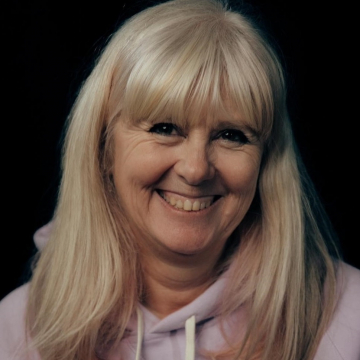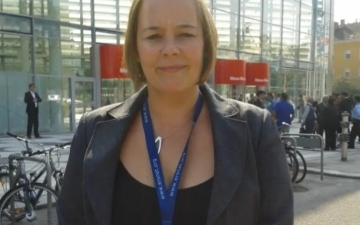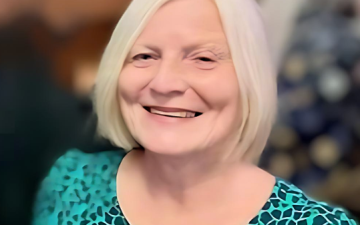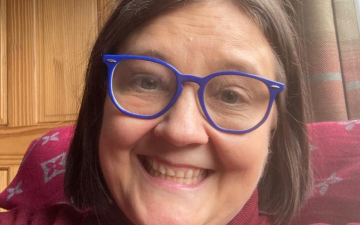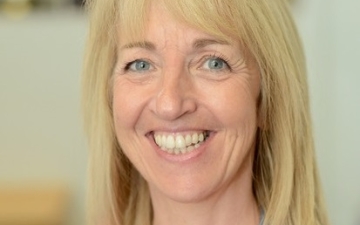
Here, she tells us why she became a nurse, what attracted her to respiratory care and how important further education and committee work has been for her career.
“I wasn’t sure what I wanted to do during my A Levels and at the time I was doing a lot of babysitting for our next-door neighbour. He was a consultant, and his wife was a nurse. They kept saying I should think about nursing.”
Vikki tells us there wasn’t a lot of career advice during her A Levels. Thanks to her neighbours who were healthcare professionals, she was encouraged to be a nurse. Armed with information and grateful to be able to see the passion for their roles, Vikki applied to several of the London hospitals.
“My neighbours were both so passionate about their roles. And we were good friends. I went down the nursing route and I’ve never regretted it,” Vikki tells us. She studied a fourth A Level, Human Biology, at the local college to ensure she could train to be a nurse in London.
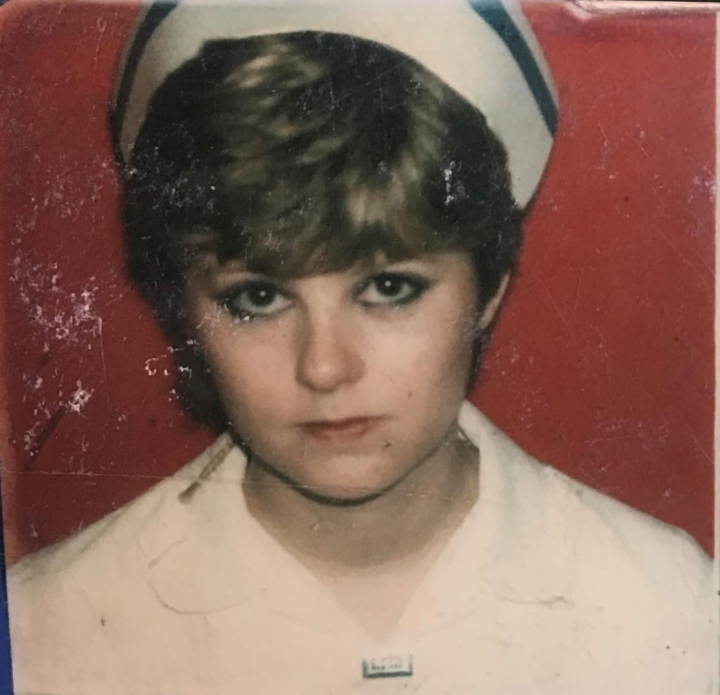
“When I look back on my career, it was a series of lucky accidents. Because like I said, I had no major desire to be a nurse, but then once I started, I loved it, I never want to do anything else.”
Working at the Royal Brompton Hospital after she qualified in 1982, it was experience working in Cardiothoracic which exposed Vikki to respiratory care. “When I qualified, I worked at the Royal Brompton Hospital for 10 months, on Cardiothoracic. We were surrounded by respiratory,” she tells us.
In 1983, her partner, now husband, moved to America for work. Vikki decided to join him. However, it wasn’t easy transferring to be a nurse in the USA. “I had to do all the American state boards, you couldn’t do a direct transfer. I had to do some training and sit the national and the state boards,” she says.
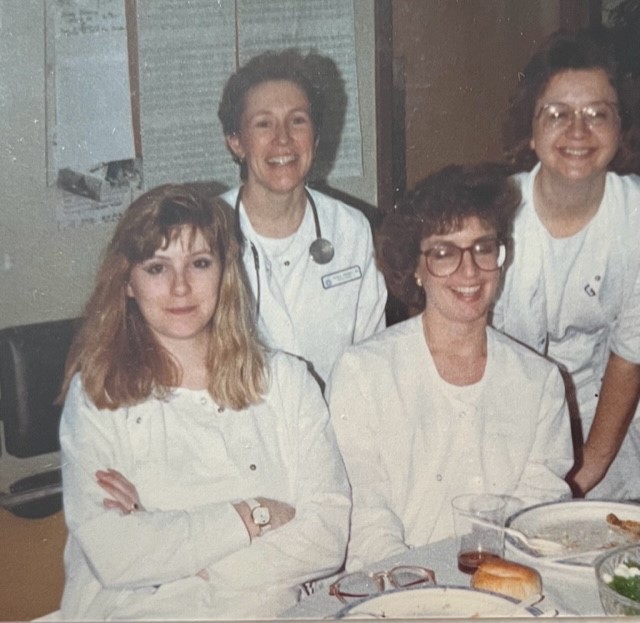
“I qualified as a Registered Nurse in America in 1984. Because my background was in Cardiothoracic, I got a job in our local non-profit hospital in the Cardiothoracic unit. I then moved into ITU.”
Vikki built up a lot of experience in America, completing several intensive care courses and working in Neurotrauma.
“When I had my daughter, we decided we wanted to bring her up in England. So, we moved back. I really wanted to stay in intensive care. But they wouldn’t accept any of my qualifications in England because they were all American,” Vikki explains. Despite pushing for a job in ITU, she started as a Night Sister at Yeovil District Hospital.
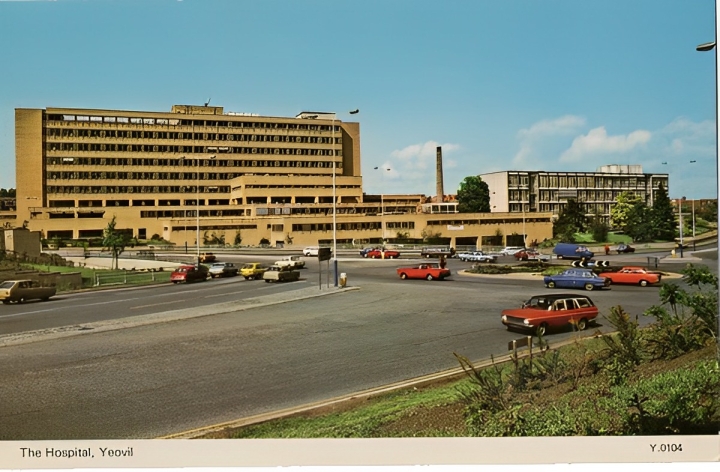
As Night Sister, Vikki had one difficult night which essentially sparked the start of her respiratory career. “We had a cardiac arrest on a relatively young man. The consultant on call was a respiratory consultant. He asked a lot of questions and I told him about how I had been used to working under pressure in large trauma units. He figured out I was in completely the wrong job and told me to come for an interview for a Respiratory Nurse Specialist. I turned up for my interview with little time to prepare. I got the job.”
Picture courtesy of Bob Osborn, Yeovil’s Virtual Museum
In 1992, Vikki started as a Respiratory Nurse Specialist at St Helier Hospital as they were setting up a new big unit. “They set up a respiratory unit run by Nurse Specialists. It was a nurse-led unit called the airways clinic for which I was recruited. We were involved in some of the research and trials.”
It wasn’t long into her Respiratory Nurse Specialist Role before Vikki found herself headhunted for a role at Kingston Hospital. “I stayed at Kingston for 10 years and we started it from scratch, setting up respiratory and sleep services. It was lovely. We were working with our local GPS and fundholders, setting up outreach services,” Vikki explains.
Vikki tells us further education, being a part of respiratory committees and teaching has helped her career in several ways. “I did the BSc Health Studies Nurse Practitioner Diploma combined course in 1998. It was very frustrating because in 1999, it became a master’s degree and I wish I’d done it later.”

Ask Vikki what she’d be doing if she hadn’t gone into nursing, and she’ll tell you it would likely have been journalism – though she’s never seriously thought about changing careers. “I’ve written and published articles over the years, I love reading. I tell a lie when I say I’ve not thought about a career change. I trained as a Homeopath in 2003. I had many patients who were using complementary therapies, and I wanted to understand it. I learnt a lot from practicing homeopathy.”
Vikki has also gained valuable experience working for Asthma UK as Clinical Lead. “I did maternity cover which I really enjoyed because it was so different. You think you know everything as a nurse and then you work for a charity. You are encouraged to refer to the clients as people with asthma rather than patients and you have to think about asthma from a completely different perspective,” Vikki explains. She found herself in another role soon enough, telling us “From 2005 to 2015 I worked on and off as the Respiratory Clinical Lead for West Surrey, running a community Respiratory Team which was taken over by Virgin Care.”
In 2015, Guildford & Waverley CCG seconded Vikki to be Respiratory Nurse Consultant and lead respiratory across the CCG. Her role was to guide the CCG on prescribing decisions and support development of local pathways of care in line with national guidance, as well as provide respiratory education across the CCG. It was here where Vikki became involved in an asthma project, looking at prescribing and patient care. “We made a huge amount of cost savings, which we presented at PCRS. We stepped a lot of patients down to either alternatives or a lower dose inhaler,” Vikki says.
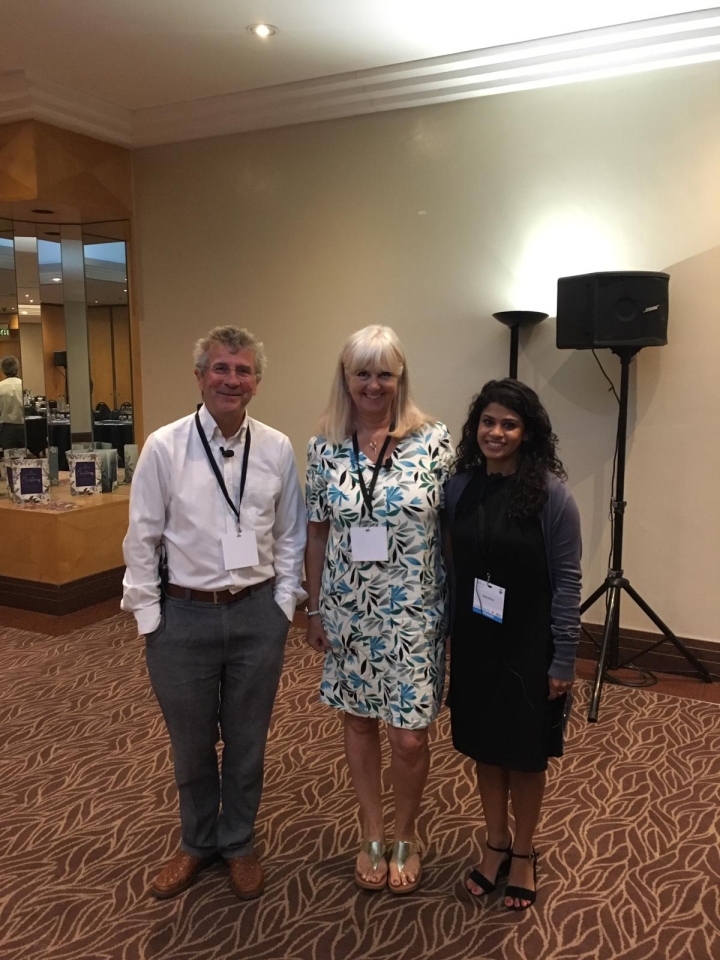
Vikki has sat on multiple advisory boards and committees throughout her career. She was on the Executive Board of PCRS for three terms, as well a member of the Education, Standards of Care and Policy Development Committees. Asking about her most memorable career moment, she remembers the feeling of being voted onto the executive board of PCRS. “I was thrilled because I knew that I could really make a difference then. My whole PCRS story is a highlight. They have been a big part of my life, because I’ve made such good friends, had such good support and colleagues, and I’ve learned so much.” Vikki wants to encourage more healthcare professionals to join PCRS. “What you get from it is the confidence and the knowledge base and the sense of community. The respiratory community is second to none.”
Leaving the CCG in 2020, Vikki stepped into a teaching role. However, she sits on the board of Trustees for PCRS and still does locum work as a Respiratory Nurse at a local practice. “I’m not a huge fan of people teaching other people when they don’t see patients. Working directly with patients is just invaluable. I teach online spirometry courses, as well as training on asthma updates and COPD updates,” she explains.
Vikki tells us one of the biggest challenges during her career was trying to balance being there for your children and husband while doing your job.
“So much of it is done in your own time. Without my husband’s support and encouragement, I couldn’t have done it. Another thing that’s been the biggest help is the respiratory community. We’re so strong. They help maintain your ability to cope when it seems very difficult.”
Words of wisdom
If Vikki had one piece of advice for anyone starting out in respiratory nursing, it would be to never reinvent the wheel. “I recommend joining PCRS, I say that to everybody. I’d tell them to ask for help, use the networks, talk to your colleagues, and don’t feel like you’re working in isolation. The chances are someone will have done a piece of work that can be adapted.”

